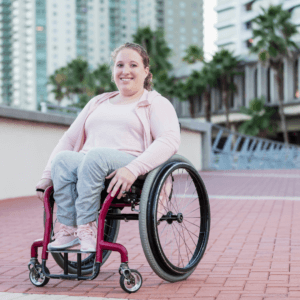It is essential to understand the current requirements for receiving disability benefits when filing a claim. Recent changes to these requirements could affect how your claim is evaluated, particularly if you have faced a denial or are considering an appeal.
Recent Changes to Disability Benefit Requirements
In the latter half of 2024, the Social Security Administration (SSA) will implement significant updates to the disability benefit requirements. These changes involve modifications to the list of occupations used to assess eligibility for Social Security Disability Insurance (SSDI) and Supplemental Security Income (SSI).
Historically, the SSA determined whether an individual could perform other types of work based on the Dictionary of Occupational Titles (DOT) list. This list, which included occupations such as canary breeder and railroad telegrapher, will be discontinued.
The removal of 114 occupations from the DOT list reflects the SSA’s effort to modernize its disability determination process. The agency will now focus on more relevant and contemporary job roles, ensuring that the evaluation of your ability to engage in other work is based on current job market conditions.
Additionally, 13 occupations previously used to determine “not disabled” will require more substantial evidence to justify this assessment, including roles like dance hall hostess and nut sorter.
Impact on Disability Benefits Recipients
These updates are intended to make the disability benefits process more aligned with today’s job market. By eliminating outdated occupations, the SSA aims to provide a fairer and more accurate evaluation of an individual’s ability to work. This change is expected to improve the determination process and address long-standing concerns about fairness and relevance.
Understanding these new requirements is crucial for individuals who have faced SSDI claim denials or are preparing for an appeal. Eliminating outdated job roles from the DOT list may affect how your case is reviewed, mainly if previous evaluations were based on these obsolete occupations.
Long-Term Implications of These Changes
The recent updates to disability benefit requirements are set to impact Social Security beneficiaries in the long term significantly. The Social Security Administration has emphasized its commitment to improving the accessibility and relevance of its disability programs, ensuring they reflect the current job market. By removing outdated occupations from the assessment criteria, the SSA aims to streamline the process and focus on more applicable job roles.
Martin O’Malley, the Social Security Commissioner, supports this shift, noting that it will eliminate the use of obsolete job categories that no longer reflect today’s economy. This reform has garnered positive feedback from various sources, including social media and advocacy groups, that view it as a crucial step toward improving the lives of many individuals.
Importantly, this change is expected to benefit marginalized communities, including people of color who historically face higher rates of benefit denials. With a significant percentage of these groups experiencing disability, this update is a pivotal move towards addressing disparities in access to equitable care and reducing barriers faced by underserved populations.
How Culbertson, Jacobs & LaBoda Can Help
At Culbertson, Jacobs & LaBoda, we specialize in handling SSDI claim denials and appeals. With over 40 years of experience in Social Security Disability law, our skilled attorneys are well-versed in the evolving requirements and can navigate these changes effectively.
We are dedicated to offering skilled representation to help you get the benefits you deserve.
Our team is equipped to handle complex disability cases and appeals, ensuring that your claim is thoroughly evaluated under the new regulations. We understand the impact these changes can have on your case and are committed to advocating for your rights throughout the process.
Schedule a Consultation Today
If you are concerned about how the new requirements for receiving disability benefits might affect your claim, contact our Orlando disability laywers to schedule a consultation. We will help you understand the implications of these changes and guide you through the appeals process to pursue a favorable outcome.

